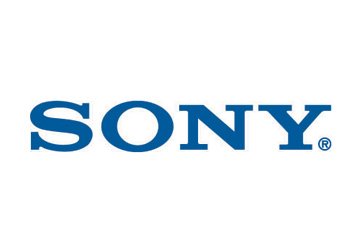


SONY Service Manuals PDF
Sony Brand History
the origins of many world-famous companies were two people, one of whom was a talented engineer, the other was well-versed in the business world. Sony was not an exception.
This happened in 1946, in Japan, which had only just begun to reborn after the defeat and turmoil of World War II. In the partially destroyed shopping mall Nihonbashi, miraculously resisted after the bombing of Tokyo, a young engineer Masaru Ibuka opened a repair shop for various electrical equipment and electronics. After a while he, with his old friend Akio Morita, founded in the same room an office for a new company that received the high-profile name of the Tokyo Telecommunications Research Institute, which was sometimes shortened to Totsuko.
A year later they will move into a kind of what can already be called the head office. Their first development was a set-top box for radios, which expanded the capabilities of the device, allowing it to accept foreign programs. These products were not very much in demand, but allowed to stay afloat, having built a kind of initial capital. And sometimes it was necessary to take a payment not by money, but by various products, which was a common phenomenon for an impoverished country. Later, more profitable products appear.
But the real success came in September 1949, when the first in Japan tape recorder was created. A rather ugly massive box that used 25 cm diameter drums was called Type G.
In 1958, the company officially changes its name to Sony Corporation, which is still in use.
In the future, the main focus was on two things - innovative developments and beautiful brands. The company owns a great variety of brands. Among them there are world famous ones (Trinitron, Vaio, PlayStation, Walkman, Bravia, Cyber-shot, Clie), and those that are known only to specialists.
The second half of the twentieth century was marked by the dawn of Sony. A kind of "golden period". The company has successfully mastered new market segments. And others create it. There are many unique devices and developments, analogues of which competitors will not be able to create soon.
In his book "Just for fun", the creator of the Linux operating system, Sony Linus Torvalds, Sony foretold a great future. In his opinion, the corporation was supposed to become for the electronics world approximately the same as Microsoft for the software world. It's not surprising - in those years when the book was written (90th of last century), Sony really developed at a rapid pace. More than 500 innovative developments were presented in 1990 alone! The Sony brand has become a megabrand - many consumers often purchased electronics only by focusing on it, even without paying attention to the products of competitors.
To date, things are no longer as good in Sony as before. The structure was too complicated, it did not allow adequately and quickly to respond to new market trends, and confidence in its own unshakableness. The policy of imposing own standards played a negative role. The company, always considered one of the most innovative, suddenly ceased to have time to respond to the technical trends of the market. As a result, leading positions in many areas have been lost - portable players (now ruled by the Apple Ball), TVs (Samsung), game consoles (Nintendo). Unsuccessful was the alliance with the Swedish Ericsson, - the brand Sony-Ericsson could not properly wag the market (Nokia, Samsung, LG, HTC, Apple). The main competitor was, unexpectedly, the South Korean conglomerate Samsung, which bypassed the Japanese in many areas.
The most important thing that was not taken into account in Sony is the fact that modern users are interested not in the "loud" brand, but in high functionality, even in some damage to quality. People willing to pay large sums only for a beautiful label became less. SonyStyle lost its former attractiveness, although it did not fade completely. And in professional technology Sony plays a significant role. But Torvalds's prediction did not come true.
The company is headquartered in Tokyo, Japan. Sony Group is a complex structure with a lot of divisions and subsidiaries. The controlling company is Sony Corporation. The main sphere of production is electronics, but the company plays a significant role in the mass media, engaged in television and radio broadcasting and the production of motion pictures.
